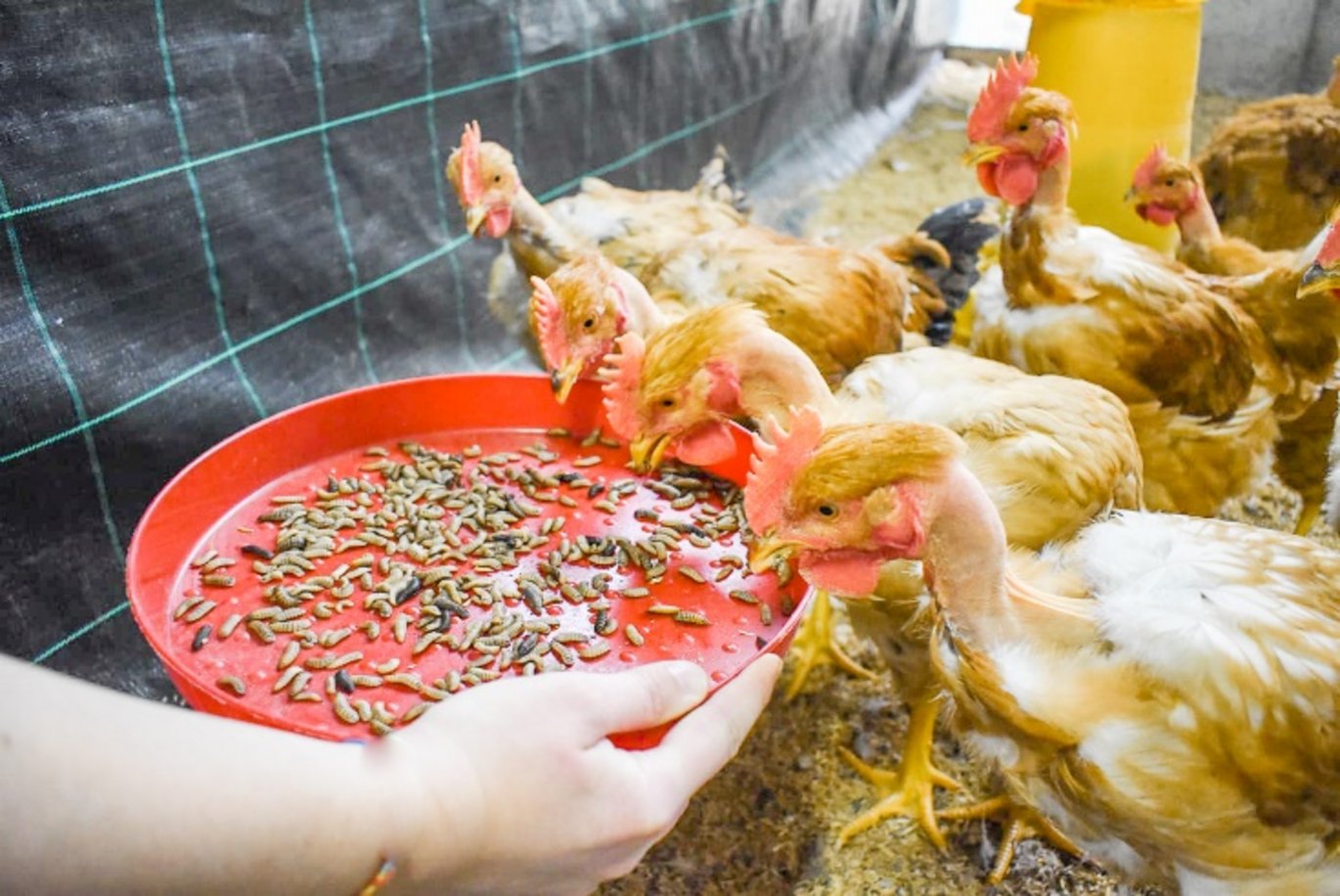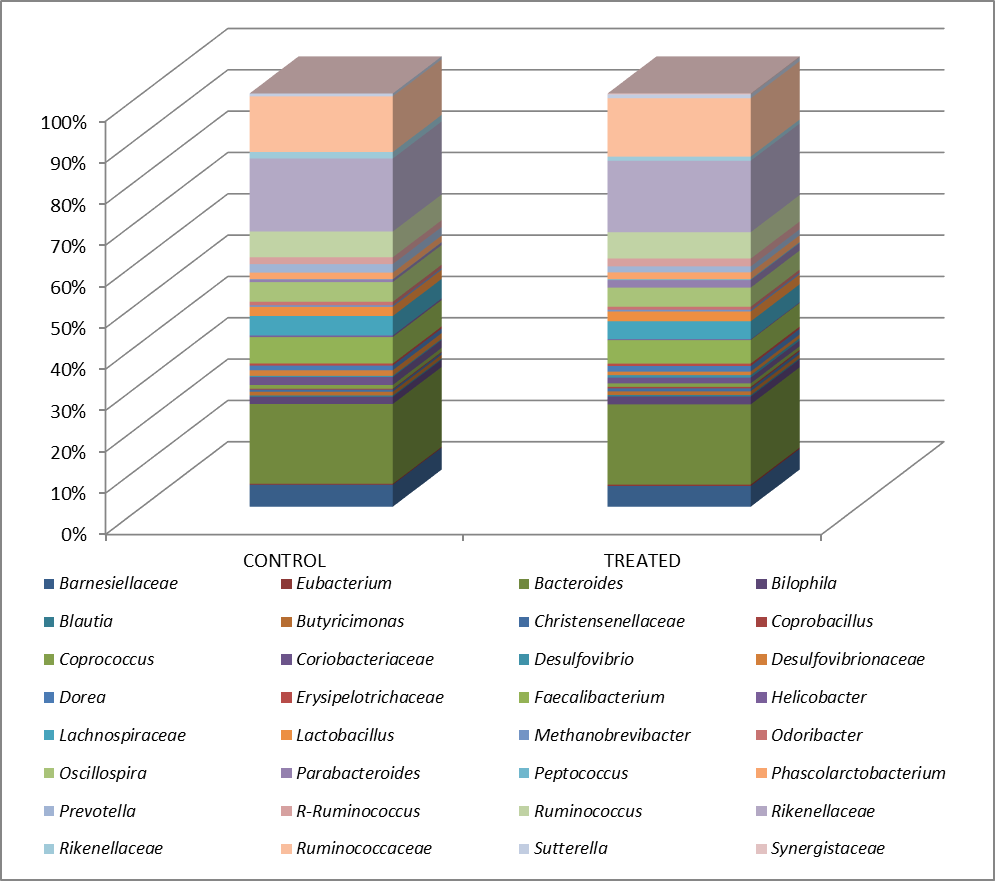Benefits of live larvae supplementation on gut microbiota of organic chickens
Can insect live larvae provision improve gut health in chickens? A study, carried out within POULTRYNSECT project, investigated the effects of Black soldier fly (BSF) live larvae provision on gut microbiota in intermediate slow-growing organic chickens.


Gut health is one the most discussed topic in animal production. In poultry farming, several studies on broilers have shown how an “healthy” intestinal microbiota can improve productive performance and animal health.
Insects are one of the most promising ingredients in animal nutrition, usually known as a valuable and sustainable source of protein, also rich in specific bioactive compounds (i.e., chitin, lauric acid, and antimicrobial peptides) with positive effects on gut health and overall health status of animals.
The aim of this study, under POULTRYNSECT project, was to investigate the effects of Black soldier fly (BSF) live larvae provision on gut microbiota modulation of an intermediate-growing chicken genotype (Label Naked Neck, LNN).
A total of 240 male (M) and female (F) birds were randomly allocated into 4 treatments (Control= CM and CF, Treated= LM and LF), with 10 birds/pen and 6 replicates/treatment.
Treated animals received a daily 10 percent supplementation of BSF live larvae, based on the average daily feed intake. At 82 days of age, samples of caecal digesta were collected from 60 animals (15 birds/treatment), then frozen and stored at -80°C until 16S rRNA gene sequencing analysis.
Results of the trial highlighted that caecal microbiota of birds fed with BSF live larvae showed a higher relative abundance of Coprobacillus, Synergistaceae and Christensenellaceae bacteria, with the latter having the potential to degrade chitin’s insect meal, a compound with immunoregulatory properties (Fig.1).
Chitin is the second most abundant polysaccharide after cellulose. It is not degradable, but it can be absorbed in the small intestine and fermented by the microbiota of the large intestine. It is reported that this compound can have antimicrobial and immunostimulant effects, proving that it can act as an alternative to antibiotics and work as a probiotic.
Results clearly show that even a dietary 10 percent supplementation of BSF live larvae can slightly improve microbiota profile and, potentially, short chain fatty acids production in intermediate-growing organic chickens. These results confirmed previous observations recorded in broiler chickens, where larvae provision seemed to produce a slight improvement of the caecal microbiota.
Preliminary results have already been presented in a poster at INSECTA 2022 conference and we are looking forward to present all definite results in a peer reviewed scientific journal.
Relevant links
https://poultrynsect.eu/
https://orgprints.org/id/eprint/44480/
Authors
Ilaria Biasato, UNITO, Department of Agricultural, Forestry and Food Sciences, Italy ilaria.biasato@unito.it
Francesco Gai, CNR, Institute of Sciences of Food Production, Italy francesco.gai@ispa.cnr.it
Ilario Ferrocino, UNITO, Department of Agricultural, Forestry and Food Sciences, Italy ilario.ferrocino@unito.it
Valeria Zambotto, CNR, Institute of Sciences of Food Production, Italy valeriazambotto@gmail.com
Editor: Karin Ullven, EPOK / Design: Christine Dilling, ICROFS
